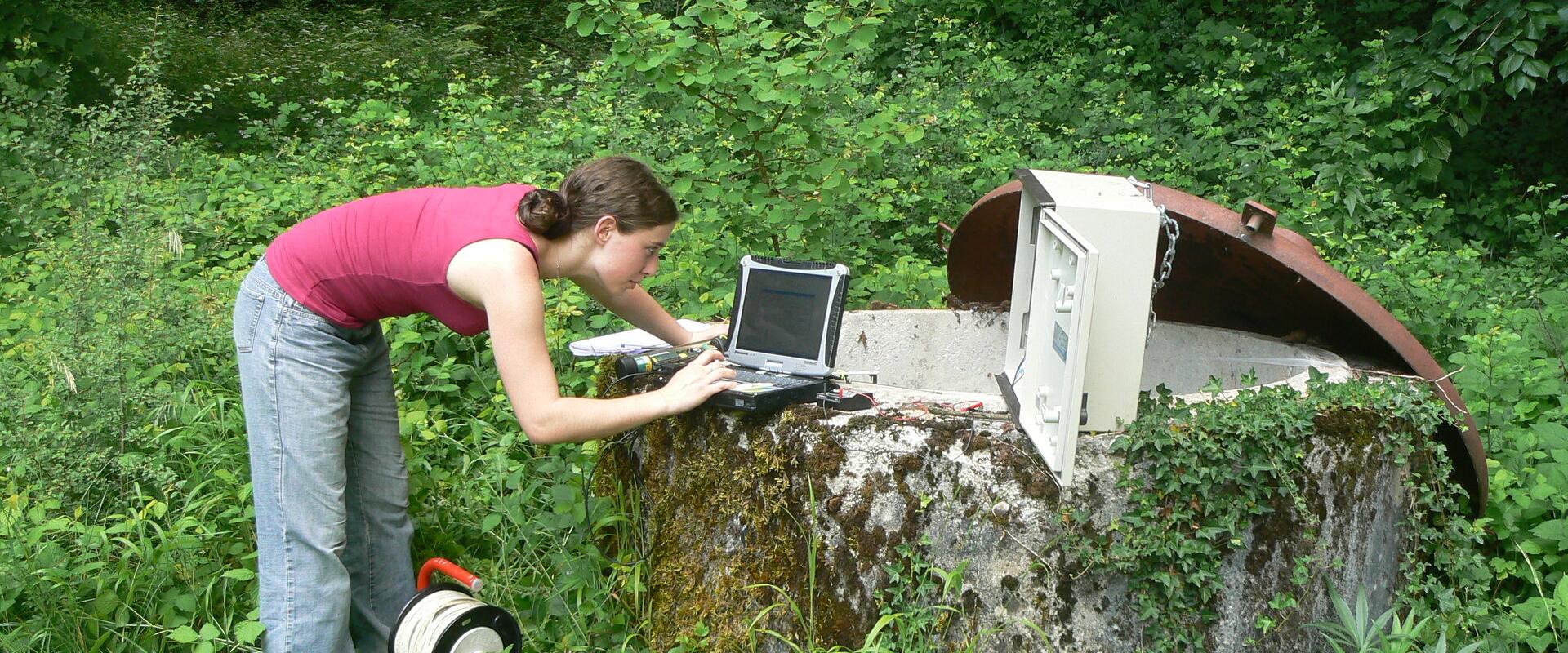Delphine Allier, BRGM hydrogeologist
Transcription
After a science high-school degree and preparatory classes, I entered an engineering school: ENTPE, National School of Public Works of the State. After that, I specialized in the environment.
I've always wanted a job that allows me to interact with my environment and apply my beliefs, and water was my first attraction. I've started out by doing groundwater mapping. And as groundwater resources are invisible, they're quite difficult to map. You need to understand how they interact with man, whether there are relationships between groundwater and surface water, and how, when water is required for irrigation or drinking water, we will extract the groundwater, and whether there is enough to satisfy needs. Plus also, regarding quality, we ensure it's of a high level and well protected from different kinds of surface pollution. We know very little about aquifers and water tables in France and worldwide. So we still have many things to discover. Working in research is very satisfying, because we're the guarantors, in a way, of a science. Plus we pass this on to others. We take part in a lot of conferences and training sessions, so you get a real feeling that you're contributing to resource management. That's also very satisfying because it's a concrete contribution. One of the advantages in scientific research is that you're free to organize your time depending on your projects. Plus the work can be very varied. You can work in the office doing lots of mapping or doing modelling on a computer. You can also take part in international projects where you go out into the field. Or you can work with the laboratory technicians. So there's a wide variety of choices on offer. We also take part in putting together new projects. So if there's something we care about or good partnerships to be forged for a project, then we can decide to set up a project with teams we get on well with. So we have great freedom in choosing our projects and in managing our daily work.
Water careers: hydrogeological engineer
Transcription
Geoscience for a sustainable Earth
Aquitaine groundwater management information system
IN PARTNERSHIP WITH:
PRESENTS
JOBS THAT MAKE YOU THIRSTY!
OLIVIER CABARET, 30 YEARS OLD HYDREOLOGY ENGINEER
HAS BEEN WORKING AT THE BRGM FOR ONE YEAR
HOW DO YOU INTRODUCE YOURSELF TO YOUR CLOSE ONES?
With my family, I introduce myself as a hydrogeology engineer first. Then, I specify by saying I work in water management. I study the circulation, the behaviour of groundwater in order to improve its management and conservation.
WHAT ARE YOUR MISSIONS WITH THE BRGM?
My main mission is to study how particular aquifers function. These are karstic aquifers, notably the karstic aquifers in Dordogne. I also have a second mission, to study how the Plio-Quaternary table functions. To do this, we have set up specific tools, such as hydrodynamic modelling. We use computer tools to model the behavior of these superficial tables with deeper tables or with rivers.
HOW DO YOU MEASURE THE WATER LEVEL IN A TABLE?
We have to carry out a multitude of piezometric measurements in the field to evaluate the water level.
HOW DO YOU STUDY KARSTIC AQUIFERS?
To study karstic aquifers, we take a series of measurements of orientation and fracturation, since the flow of the groundwater will be along these specific fracturations. We will also measure underground, via underground quarries, which allow us to have a 3D image of our fracturations and karstic conduits.
HOW DO YOU STUDY THE QUALITY OF GROUNDWATER?
For this, we use physicochemical measurements. These allow us to study the water's temperature, conductivity, and pH. We may try to look for specific elements, such as nitrates, to allow us to identify potential pollution that can affect people.
WHAT IS YOUR TYPICAL DAY LIKE?
My typical day is first of all, lots of office work, since we have very few field projects. They're given to technicians. Designated fieldwork technicians. We work on the interpretation, to develop tools that will allow us to analyse how groundwater functions, and its origins.
WHY DID YOU CHOOSE THIS JOB?
Why I chose this job? Because it is directly tied to the environment and more specifically, to water conservation, which is vital for all of us and is also critical in the economic development of a region, a nation. I wanted to be an integral part of this decision-making.
WHAT QUALITIES ARE REQUIRED IN THIS JOB?
In this job, you must first be autonomous, be able to work in a team, have management skills and also good writing skills.
ANY ADVICE FOR A YOUNG PERSON WHO WANTS TO DO THIS?
My advice to a young person would be to not neglect the field aspects. Although we do a lot of office work, we have to face the reality of a site, of a specific regional context and also go to meet professionals in order to develop a network of contacts.
WHY IS HYDROGEOLOGIST A JOB OF THE FUTURE?
Why is it a job of the future? Currently, in a context where climate change is a major issue, we increasingly need to assess the availability of water, both in terms of quantity and quality.
IF YOU WERE A DROP OF WATER, WHERE WOULD YOU BE?
If I was a drop of water, I would be in a groundwater table.
FOR MORE INFORMATION:







